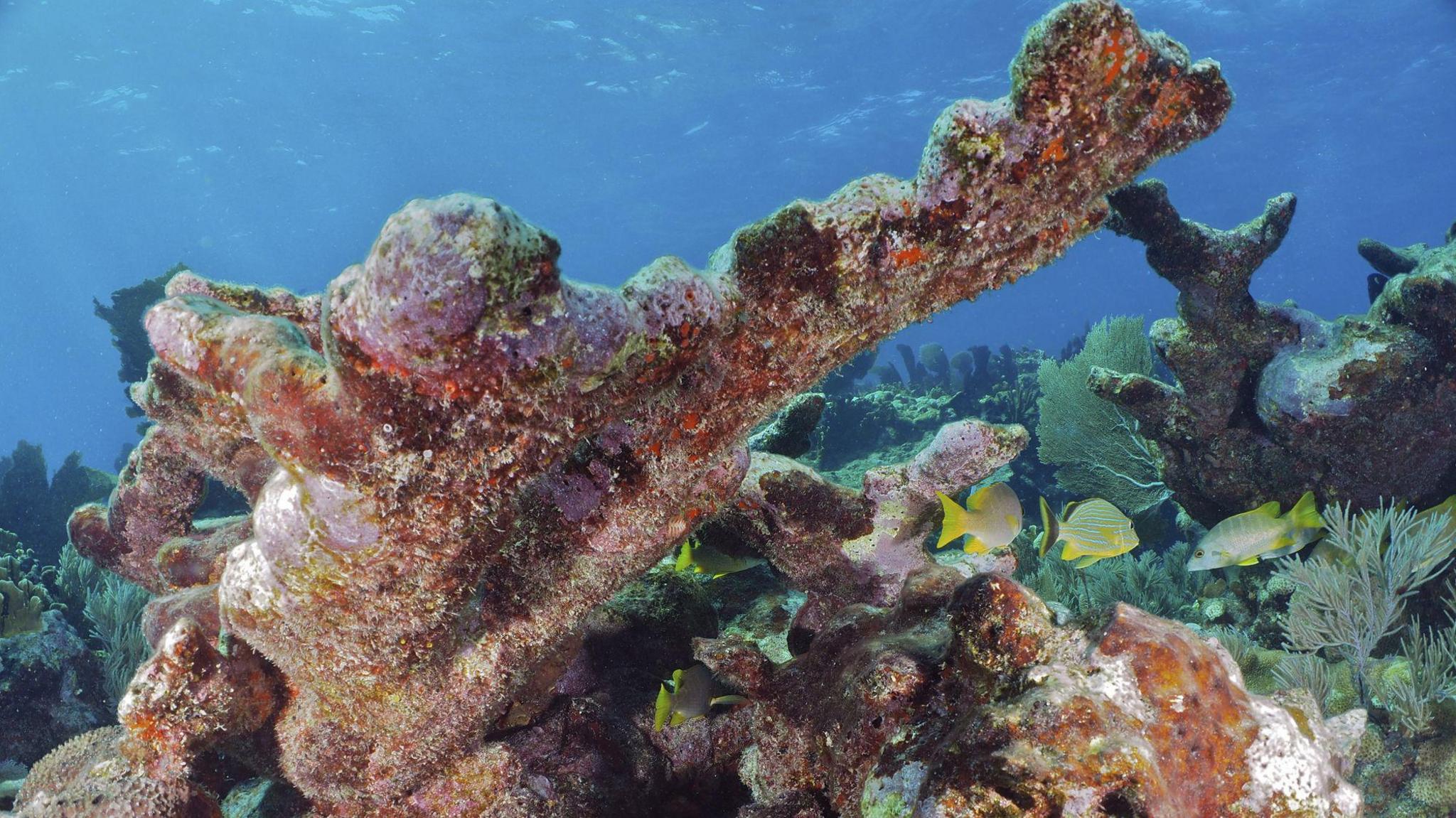Florida corals left 'functionally extinct' by ocean heatwave

- Published
Two important Florida coral species have been left 'functionally extinct' by an ocean heatwave, scientists have found.
Two years after a devastating marine heatwave, scientists have confirmed that the two types of coral are at such low numbers that they can no longer contribute to the ecosystem.
Oceans reached their highest ever recorded temperatures in 2023 hitting the corals on the US south east coast particularly hard.
With extreme heatwaves becoming more common, scientists say action is needed to stop corals dying.
Oceans reach hottest ever recorded temperature
- Published4 August 2023
Great Barrier Reef threatened by 'unprecedented' sea heat
- Published7 August 2024
New large coral reef discovered in the Mediterranean Sea
- Published16 October
The elkhorn coral (Acropora palmata) and staghorn coral (Acropora cervicornis) thrived across Florida's 560-kilometre-long reef for more than 10,000 years.
Now a study published in the journal Science suggests their role as primary reef builders has come to and end.
They are called 'functionally extinct' because although there are some reefs both in the sea and in laboratories, there are not enough to play a functional part in the ecosystem.
"This ecosystem is forever transformed," says study co-author Ross Cunning, a coral biologist at the John G. Shedd Aquarium in Chicago, Illinois.
That does not mean scientists are giving up on either species, he says, but what conservationists do now "needs to fundamentally change".
How does coral become bleached?
Florida's corals have been hit repeatedly by bleaching events, which happen when rising water temperatures cause corals to expel the algae that provide them with nutrients and colour.
But the record-breaking temperatures two years ago really affected Florida coral.
In 2023, ocean temperatures registered above 31 °C for more than a month.
The heat was two to four times higher than previous records.
Although some corals survived, Acropora corals were almost completely wiped out.
Scientists have tried replanting corals, but warn that as global heating continues more needs to be done to stop global warming.
"None of this will matter if we don't address the root of the problem," Ross Cunning, says.
